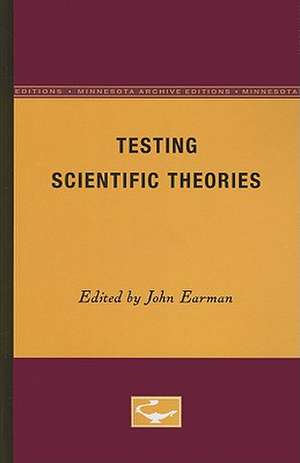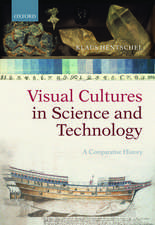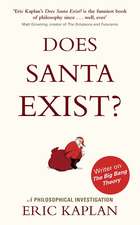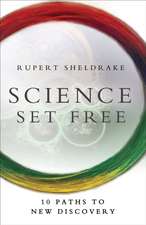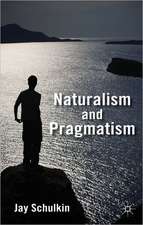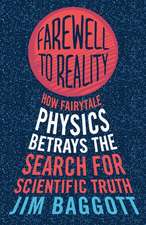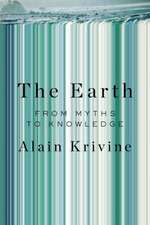Testing Scientific Theories: Minnesota Studies in the Philosophy of Science, cartea 8
Editat de John Earmanen Limba Engleză Paperback – 14 feb 1984
Testing Scientific Theories was first published in 1984. Minnesota Archive Editions uses digital technology to make long-unavailable books once again accessible, and are published unaltered from the original University of Minnesota Press editions.
Since much of a scientist's work consists of constructing arguments to show how experiments and observation bear on a particular theory, the methodologies of theory testing and their philosophical underpinnings are of vital concern to philosophers of science. Confirmation of scientific theories is the topic of Clark Glymour's important book Theory and Evidence,published in 1980. His negative thesis is that the two most widely discussed accounts of the methodology of theory testing - hypothetico-deductivism and Bayesianism - are flawed. The issues Glymour raises and his alternative "bootstrapping" method provided the focus for a conference sponsored by the Minnesota Center for Philosophy of Science and for this book. As editor John Earman says in his preface, the papers presented in Testing Scientific Theories germinate so many new ideas that philosophers of science will reap the harvest for years to come.
Topics covered include a discussion of Glymour's bootstrapping theory of confirmation, the Bayesian perspective and the problems of old evidence, evidence and explanation, historical case studies, alternative views on testing theories, and testing particular theories, including psychoanalytic hypotheses and hypotheses about the completeness of the fossil record.
Since much of a scientist's work consists of constructing arguments to show how experiments and observation bear on a particular theory, the methodologies of theory testing and their philosophical underpinnings are of vital concern to philosophers of science. Confirmation of scientific theories is the topic of Clark Glymour's important book Theory and Evidence,published in 1980. His negative thesis is that the two most widely discussed accounts of the methodology of theory testing - hypothetico-deductivism and Bayesianism - are flawed. The issues Glymour raises and his alternative "bootstrapping" method provided the focus for a conference sponsored by the Minnesota Center for Philosophy of Science and for this book. As editor John Earman says in his preface, the papers presented in Testing Scientific Theories germinate so many new ideas that philosophers of science will reap the harvest for years to come.
Topics covered include a discussion of Glymour's bootstrapping theory of confirmation, the Bayesian perspective and the problems of old evidence, evidence and explanation, historical case studies, alternative views on testing theories, and testing particular theories, including psychoanalytic hypotheses and hypotheses about the completeness of the fossil record.
Preț: 475.51 lei
Nou
Puncte Express: 713
Preț estimativ în valută:
90.99€ • 97.30$ • 75.86£
90.99€ • 97.30$ • 75.86£
Carte tipărită la comandă
Livrare economică 17 aprilie-01 mai
Preluare comenzi: 021 569.72.76
Specificații
ISBN-13: 9780816611591
ISBN-10: 0816611599
Pagini: 496
Dimensiuni: 146 x 229 x 38 mm
Greutate: 0.65 kg
Ediția:Minnesota Archi.
Editura: University of Minnesota Press
Colecția Univ Of Minnesota Press
Seria Minnesota Studies in the Philosophy of Science
ISBN-10: 0816611599
Pagini: 496
Dimensiuni: 146 x 229 x 38 mm
Greutate: 0.65 kg
Ediția:Minnesota Archi.
Editura: University of Minnesota Press
Colecția Univ Of Minnesota Press
Seria Minnesota Studies in the Philosophy of Science
Notă biografică
John Earman is adjunct professor of philosophy at the University of Pittsburgh. He served as editor, with Clark Glymour and John J. Stachel, of another volume in this series, Foundations of Space-Time Theories.
Textul de pe ultima copertă
Minnesota Archive Editions uses digital technology to make long-unavailable books once again accessible to scholars, students, researchers, and general readers. Rich with historical and cultural value, these works are published unaltered from the original University of Minnesota Press editions. The books offered through Minnesota Archive Editions are produced in limited quantities according to customer demand and are available through select distribution partners.
